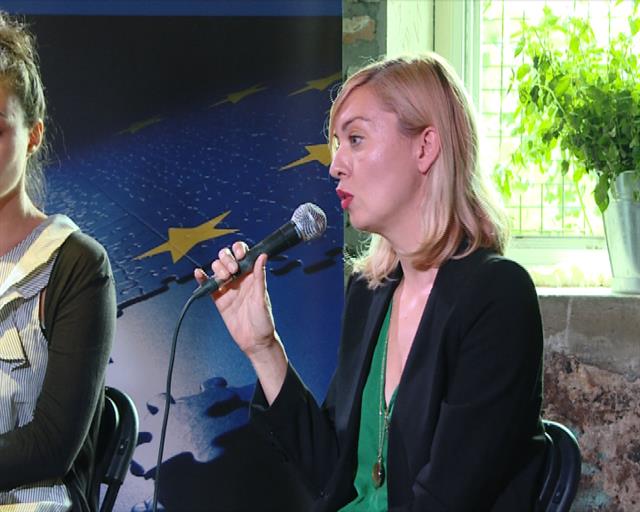Hotline: +381 61 63 84 071
Refugee integration in Serbia is feasible with politician and media support

Refugee integration in Serbia is feasible with politician and media support
TUESDAY, JULY 17, 2018, 16:34 -> 16:56
SOUCE: TANJUG
Refugee integration in Serbia is possible, and it is up to politicians and media how local citizenry will take it; this message is emphasized during debate "Is Serbia ready for refugee intengration?"
For majority of migrants, Serbia is only a transit country, and most of them are striving to continue their way to the EU countries, while a small percentage of them is seeking asylum. The ones interested in this status find this process difficult and slow.
Debate "Is Serbia ready for refugee intengration?"
Momir Turudic, a journalist and interpreter for Farsi, says he was very proud of Serbia in 2015 when a vast number of citizens was engaged in helping refugees passing through our country.
"However, the empathy is dispensable, and it is up to politicians and media how the society will take it.”
As an example he mentioned the case from Banja Koviljaca when an Afghani was accused of raping a British girl. This news was on the tabloid front pages, followed by the citizens’ protests against migrants.
The authorities, as he remarked, responded with more caution. The situation was completely different and local police chief settled things down when he said they had 100 criminal reports, out of which 97 pertain to reports against local agressors stole money from migrants, 2 reports on assaults to migrants, and 1 report on British girl rape.
Turudic adds that by highlighting negative news tabloids tdo not contrinute to migrant integration.
Positive image of Serbia during the migrant crisis
Director of Belgrade Center for Human Rights Sonja Toskovic says that during the migrant crisis a positive image of Serbia was sent out to the world, depicting positive media and citizens’ attitude towards the crisis.
"Overall, citizens’ attitude towards migrants was good back then. I believe the integration of these people in our society is possible. It takes time, but it is feasible", stressed Toskovic.
Participants of this gathering also brought up some of the positive examples, such as “big love” between migrants and local citizenry , which was a motif for some of them to stay in Serbia.
To illustrate this, they mentioned an Afghani who set off with a group of young men from his country to Western Europe, however, on his way there he fell in love with a woman from Subotica. He stayed in that town, while his friends moved on.
Tatjana Gutic, a psychologist from PIN Organization says that community can do a lot to enrich migrants’ life; they all have a different destiny, but work with them is enriching.
Education is important for integration
Participants of this gathering emphasized that education is important in the integration process, that migrant children, who will be staying Serbia for few years, started with school for the first time last year.
The representative of Association Atina Zorana Parezanovic reminded that it is essential that the community migrants are coming into is welcoming and receptive.
The participants of the gathering stressed that aside from education, complete right to health care, as well as to labor market is cricial to integration.
The debate was organized within the project "Building together - monitoring and advocacy" which is implemented by Konrad Adenauer Foundation, Association Atina and Macedonian Lawyers Association.
As a part of this project two short documentaries were filmed on refugee integration attempts - "The beginning of better stories" and "Ozy’s documentary film school". Both documentaries speak about young people who stayed in refugee camp in Krnjaca, and their attempt to blend in.












 FACEBOOK
FACEBOOK TWITTER
TWITTER YOUTUBE
YOUTUBE